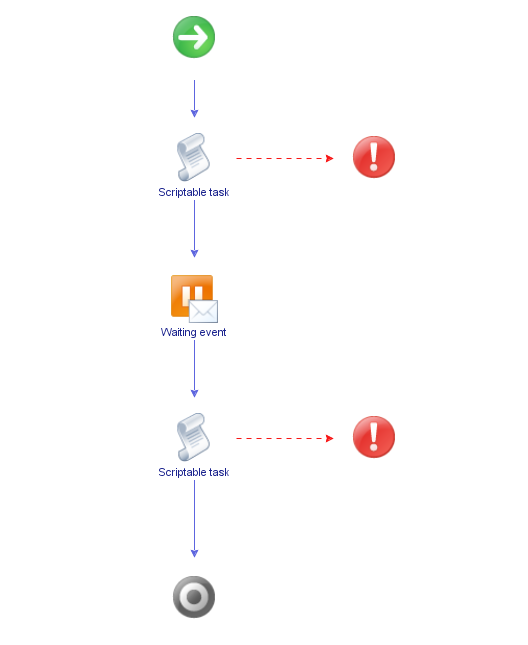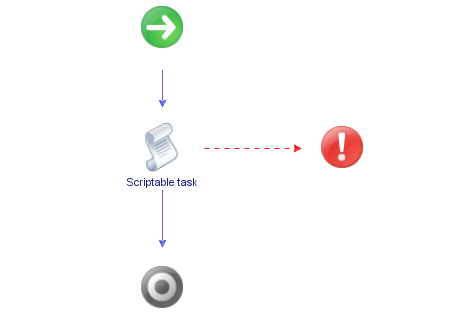You can use proxy workflows to manage the interaction between the local Automation Orchestrator server and workflows on a remote Automation Orchestrator server.
You can use the Multi-Node plug-in to generate local workflows which interact with remote workflows. These local workflows are called proxy workflows. A proxy workflow takes the input parameters from the inventory of the Multi-Node plug-in. When you run the proxy workflow, it converts the parameters to the types required by the remote workflow. When the remote workflow finishes its run, the output parameters are converted back to the local representation on the primary Automation Orchestrator server.
Synchronous proxy workflows
The synchronous type of proxy workflows preserve the API and the operation contract of the remote workflows.
The schema of all synchronous proxy workflows is the same, but contains different scripting.

The synchronous proxy workflow completes the run after the remote workflow completes and provides output parameters.
The local workflow consumes no server resources while waiting for the results of the remote workflow.
At the end of a successful run the output parameters of the proxy workflow contain a local representation of the remote workflow token. The output parameters can be used directly by other workflows on the local Automation Orchestrator server when they are of simple type, such as, boolean, number, string, and similar.
Asynchronous proxy workflows
You can use asynchronous proxy workflows to optimize the run of remote workflows.
The schema of all asynchronous proxy workflows is the same, but contains different scripting.

An asynchronous proxy workflow returns immediately a result that is a local wrapper of the remote workflow token object. The proxy workflow uses this token to check the state of the run and to retrieve the output parameters when the remote workflow completes its run. The output parameters can be used directly by other workflows on the local Automation Orchestrator server when they are of simple type, such as, boolean, number, string, and similar.
Remote execution workflows
The Remote Execution workflow category contains workflows that allow you to manage proxy workflows.
Remote Execution Standart Workflows
To access these workflows, navigate to and enter the orchestrator and remote_execution tags in the workflow search box.
| Workflow Name | Description |
|---|---|
| Create a multi proxy action | Creates a multi-proxy action to run workflows on multiple servers. |
| Create a proxy workflow | Creates a proxy workflow that you can use to start a workflow on a remote Automation Orchestrator server. |
| Create proxy workflows from a folder | Creates proxy workflows for all workflows in a folder on the remote Automation Orchestrator server. |
Server Proxies
To access these workflows, navigate to and enter the orchestrator, remote_execution and server_proxies tags in the workflow search box.
| Workflow Name | Description |
|---|---|
| Create proxy workflows for an Orchestrator server | Creates proxy workflows on the local Automation Orchestrator server by mirroring the remote server's structure. |
| Delete proxy workflows for an Orchestrator server | Removes the proxy workflows for the local Automation Orchestrator server and deletes all generated workflows. |
| Refresh proxy workflows for an Orchestrator server | Regenerates all proxy workflows for the local Automation Orchestrator server from the remote server. |